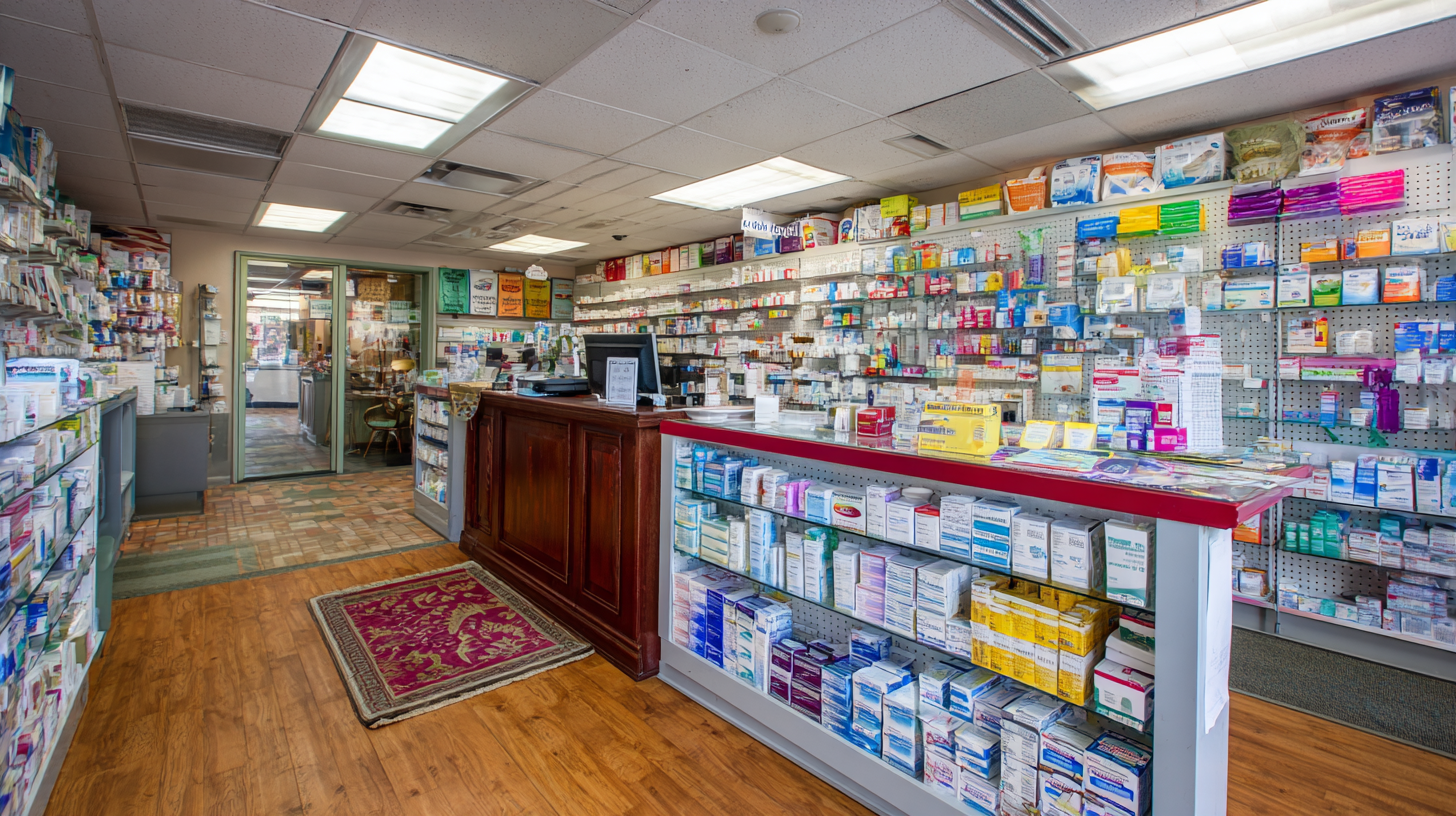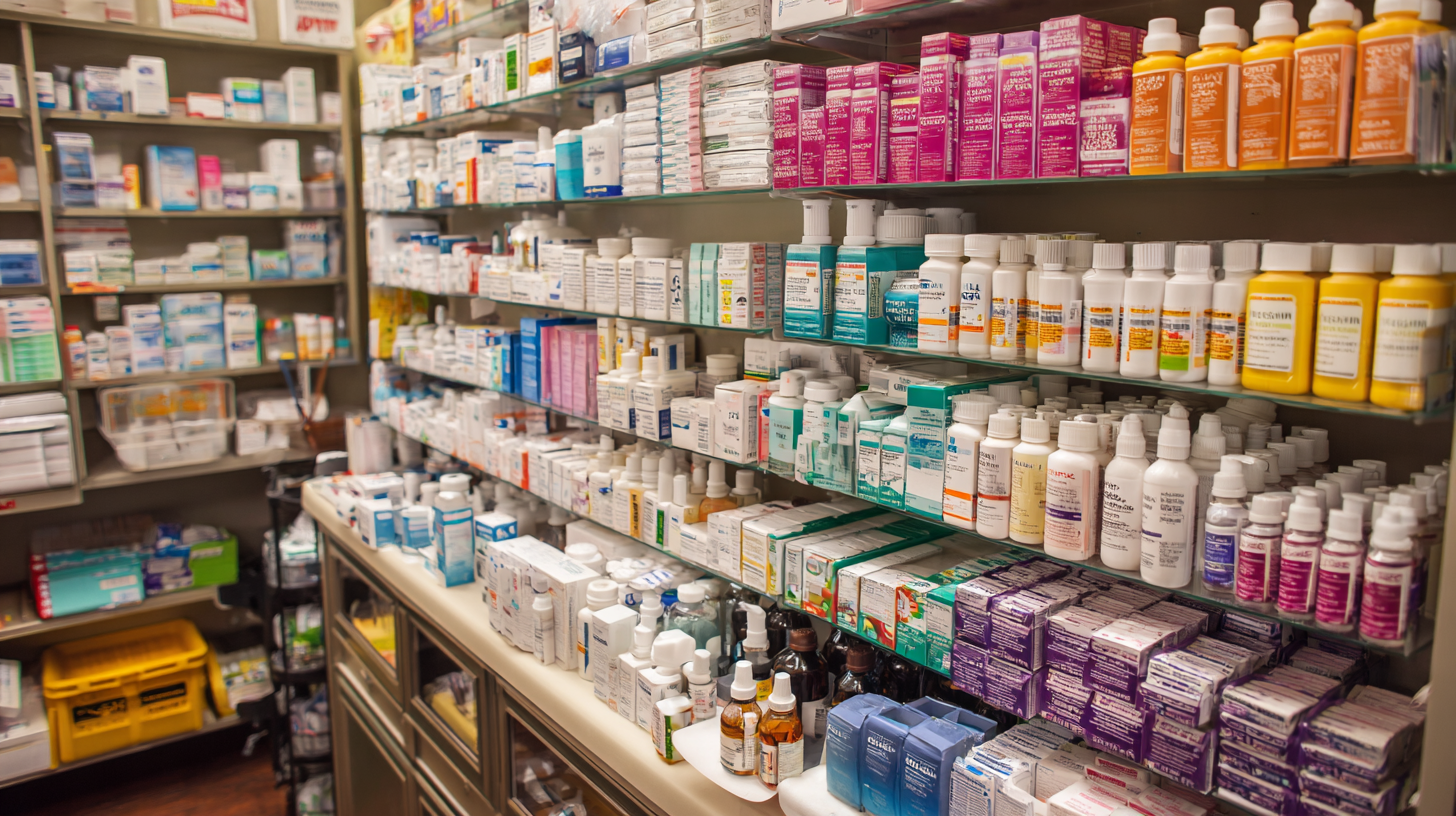Click here to browse our On The Mend Portfolio!
How to Choose the Right Health Care Supplies for Your Business Needs
Choosing the right health care supplies is crucial for businesses in the medical and health sectors, where quality and compliance directly impact patient care and operational efficiency. According to a 2022 report by the Healthcare Supply Chain Association, approximately 30% of U.S. hospitals reported issues with supply chain disruptions, highlighting the importance of strategic procurement in healthcare. In this rapidly evolving industry, selecting adequate supplies not only ensures compliance with regulatory standards but also enhances patient outcomes and minimizes costs. With the health care supplies market projected to reach $380 billion by 2028, understanding how to navigate the vast array of options available is essential for any healthcare provider or organization. This guide will explore key considerations in selecting health care supplies that meet your business needs while ensuring optimal performance and safety.

Identifying Essential Health Care Supplies for Your Business Type
When selecting health care supplies for your business, it’s crucial to identify the specific needs based on your industry type. For example, a recent report from the Healthcare Supply Chain Association highlights that approximately 30% of medical facilities underestimate their supply needs, leading to critical shortages. By understanding the unique requirements of your business—whether you run a clinic, a home health agency, or a long-term care facility—you can better align your supply choices with operational necessities.
Moreover, the type of services you offer directly influences the essential supplies you'll require. A study by the American Hospital Association found that hospitals with specialized departments often maintain a more extensive inventory of specific supplies, such as surgical instruments and diagnostic tools, reflecting their operational demands. Conversely, general practices may prioritize consumables like gloves, masks, and basic pharmaceuticals. By assessing the nature of your health care services and leveraging industry data, you can strategically decide on the essential health care supplies that will ensure efficient and effective patient care.
Evaluating Quality and Compliance in Health Care Supply Selection
When selecting health care supplies for your business, assessing the quality and compliance of those products is paramount. Quality assurance ensures that the supplies you choose meet the required standards for safety and efficacy, which is crucial in a health care environment where patient well-being is at stake. Look for suppliers that provide detailed certifications, test results, and adhere to regulatory requirements such as ISO standards or FDA approvals. This not only vouches for the reliability of the products but also helps mitigate risks associated with subpar materials that could compromise patient safety.
In addition to quality, compliance with industry regulations should be a key consideration. Health care supplies must meet stringent legal requirements to ensure that they are safe for use and effective for their intended purpose. This includes understanding the specific guidelines set forth by health authorities and ensuring that your suppliers are compliant with these regulations. Regular audits and supplier assessments can aid in maintaining a supply chain that not only adheres to legal standards but also aligns with best practices in patient care. Making informed choices in these areas is essential for fostering a safe and effective health care environment.
Cost-Effective Strategies for Purchasing Health Care Supplies
When it comes to purchasing health care supplies for your business, cost-effectiveness is key. One of the most effective strategies is to conduct a thorough needs assessment. By evaluating what supplies are essential for your operations, you can avoid overstocking unnecessary items. Create a list of must-have supplies and prioritize your purchases based on urgency and importance. This strategic approach not only streamlines your budget but also ensures that you are investing in products that serve a real purpose in your practice.
Additionally, consider building strong relationships with suppliers. Establishing partnerships with reliable vendors can lead to negotiated discounts, bulk purchase benefits, and better overall service. It’s wise to regularly compare prices and promotions across different suppliers to ensure you are getting the best deals. Utilizing online marketplaces can also provide access to competitive pricing and customer reviews, helping you make informed decisions without compromising quality. By implementing these cost-effective strategies, you can maintain a well-stocked inventory while managing your business's financial health.
Health Care Supplies Cost Analysis
This chart represents the estimated costs of various health care supplies needed for businesses, helping you make informed purchasing decisions.
Understanding Supplier Credentials and Reputation
When selecting health care supplies for your business, understanding supplier credentials and reputation is paramount. According to a 2021 report from Grand View Research, the global medical supplies market was valued at $132.7 billion and is expected to grow at a CAGR of 7.4% through 2028. With that level of growth, the dynamics of supplier reputation can significantly influence the quality and reliability of the supplies you procure. It's essential to assess whether potential suppliers are accredited by recognized industry bodies such as the FDA or ISO, which ensures that their products meet rigorous quality standards.

Additionally, examining a supplier’s track record and client testimonials can provide insight into their reliability. A study by the Institute for Healthcare Improvement found that 80% of healthcare professionals prioritize supplier reputation over price when making purchasing decisions. Investing the time to research suppliers and verify their credentials can pay dividends in ensuring the safety and efficacy of the health care products you utilize, thus enhancing the overall quality of care provided to patients.
Adapting Your Supply Choices as Your Business Grows and Changes
As businesses evolve, the choice of health care supplies must adapt to meet changing demands. A recent review on supply chain vulnerabilities emphasizes that companies must assess their existing supply chains' capacity to react to disruptions, including those induced by climate change. For instance, food production adaptation strategies, such as altering planting schedules and improving irrigation systems, are not limited to the agricultural sector but can be applied across various industries that rely on consistent and resilient supply chains. By implementing these strategies, businesses can better align their supply choices with evolving market needs.
Moreover, multinationals are contending with a fragmented global landscape, where supply chains must be flexible and responsive. A study indicates that integrating advanced technologies, such as machine learning, can bolster supply chain management by enhancing supplier selection and inventory control. Utilizing these technologies allows organizations to maintain a competitive edge while ensuring that they meet consumer preferences for quality health care products. As consumers increasingly lean towards healthier options, companies must proactively rethink their supply chain models to provide the necessary health care supplies that resonate with this growing demand.

Related Posts
-

How to Choose the Right Health Care Supplies for Your Needs
-

Transforming Healthcare with Medical Supplies 5 Key Benefits Driving Global Procurement Strategies
-

Exploring Innovative Options for At Home Medical Supplies
-

Exploring Unique Features of Best Home Medical Supplies for Your Specific Needs
-

15 Must Have Medical Supply Equipment for Every Healthcare Facility
-

How to Choose the Right Health Equipment for Your Wellness Journey
View Products
- Bathroom Safety & Shower Systems
- Canes, Knee Walkers, Rollators & Wheelchairs
- Compression Socks, Stockings & Custom Garments
- CPAP Machines, Devices, Accessories & Supplies
- Incontinence Supplies
- Lift, Reclining, and Sleeper Chairs
- Power Scooters, Power Chairs & Accessories
- Ramps & Handicap Access
- Stair, Platform & Portable Lifts
- Blog
Our Locations
Visit Us in CT, NY & CA
Looking for a 'medical store near me'? Call On The Mend for the equipment and service you need!
